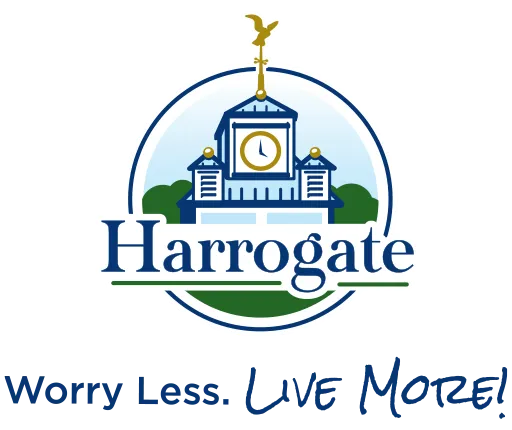Approximately 5 to 7 million Americans provide some assistance to senior loved ones who live at a distance. For these individuals, staying in touch happens through phone calls, reports from neighbors and infrequent visits throughout the year. Many times, a holiday visit may be the only chance an adult child may get to see their senior parent.
“The holidays are an opportune time for adult children to take stock of their aging loved ones’ health and condition to make sure they’re doing okay at home – or not,” says Charles Benjamin, Executive Director of Harrogate, a premier active senior living community just minutes from Toms River and the Monmouth/Ocean County beaches. “However, this may be more complicated this year due to COVID-19 and family gatherings being canceled or severely limited.”
It’s more important than ever, says Charles, to understand what red flags to look for that may indicate your parents are having difficulty. “Even if you’re not able to physically be there, you can connect with a neighbor or nearby family member who can be your point person to look for any disturbing signs,” he says.
Here are some of the biggest warning signs you or a representative should look for.
Sudden or significant weight loss.
Does your loved one look significantly thinner than they did the last time you saw them? This can be one of the biggest signs of poor health. On a medical level, weight loss could signify a serious problem like cancer, depression or dementia. It could also indicate that your loved one doesn’t have the energy or the ability to prepare and eat nutritious meals. It’s also possible that your loved one’s tastes have changed due to the aging process or certain medications they might be taking. No matter what the reason, a marked weight loss should have you connecting with your senior loved one’s physician to get to the root of the problem.
Difficulty getting around.
Is your once active mother suddenly hesitant to take her nightly walk? Is your agile father having difficulty going up the stairs? Sudden difficulties with mobility and performing regular tasks can indicate a sign of joint issues or neurological problems. Unfortunately, as we get older, our strength can naturally decline and we can become unsteady on our feet. The less active we are, the more our abilities continue to deteriorate, and the greater the risk of balance issues, mobility issues and falling. The CDC reports that more than one out of four older people falls each year, but less than half tell their doctor. Fall-related injuries are the number one reason seniors are admitted into the emergency room. If you notice your loved one is having a hard time maneuvering and performing regular tasks, make an appointment with their physician for a full check-up and a discussion of options for keeping your loved one safe, mobile and secure.
A less-than-kept-up home.
The state of your loved one’s home can speak volumes to their safety level. If the yard is a little unkempt and a little less tidy than usual, no worries – those are easily handled issues. But if you notice expired food in the fridge, overflowing garbage, filthy surroundings and dangerously unkempt conditions, that’s something you need to get to the bottom of. Other telltale signs of seniors needing assistance are unopened bills piling up or excess clutter. This is where having an extra set of boots on the ground can be beneficial for family members who live far away. Be sure to look for subtle signs of issues as well. Scorched kitchen countertops or pans can indicate that your loved one is forgetting about food left on the stove. Piles of dirty clothes can indicate an inability to do the laundry. The best resource you have is your gut: if you feel like something is wrong, it’s a good idea to check it out.
Changing moods or behavior.
It’s common to forget someone’s name every once in a while, or mess up dates from years ago. It’s less common for your cheerful, perky mom to suddenly become snappy and angry, or for your whip-smart father to suddenly become disoriented and confused. These changes don’t necessarily mean something as significant as cognitive decline, but they could indicate physical issues like dehydration, urinary tract infections, medication side effects or other underlying problems. Even if the issue is ultimately dementia or another form of cognitive decline, it’s best to know as soon as possible what’s going on. The earlier a medical professional can gauge what’s wrong, the better the outcomes and treatments can be. The last thing you want is to wait until an accident or unfortunate event forces you and your family to figure out what’s going on.
Worry less, live more at Harrogate.
“Realizing that your parents need help, and then talking to them about that need, is not easy,” says Charles. “As a longtime trusted senior living resource for thousands of older adults and their families, Harrogate uniquely understands the emotions, feelings and decisions you’re going through, and we’re here to help however we can.”
Charles says that many families have chosen a community like Harrogate for their loved one because of the many benefits communities provide to help seniors live happier, healthier and for longer. “Isolation, inactivity and poor nutrition are all huge factors that accelerate the aging process,” Charles says. “In a community setting like Harrogate, the focus is on whole-person wellness and providing the caring, dignified assistance needed to help older adults live full, healthy lives.”
Everything from our focus on fitness to dining excellence and personalized amenities are all designed to help older adults live better – and to provide family members peace of mind. “This is especially true during the COVID-19 pandemic,” Charles says. “Our continued focus is on the health and safety of our residents, and we have stringent protocols in place to maintain our status as a coronavirus-free community.”
This Is What “Worry Less, Live More” Looks Like
Located near Toms River, New Jersey, Harrogate offers a worry-free, fulfilling and experience-rich life. Here, you’ll be free of the hassles of homeownership while having access to all of the best that life has to offer – from opportunities to engage, enrich and challenge yourself to the peace of mind of future care, socialization and so much more.
No matter what your needs may be, we can meet them, ensuring you are worry-free for years to come. With our Life Care, you can enjoy independent living, home health, skilled nursing, rehabilitation, memory support and more for one entrance fee and a monthly fee that covers everything our lifestyle has to offer.
Worry Less and Live More at Harrogate!
Call for information at 866-606-0178 or visit our website.

